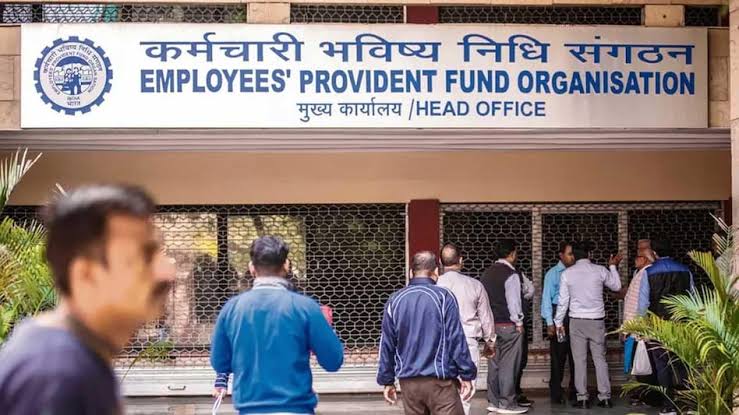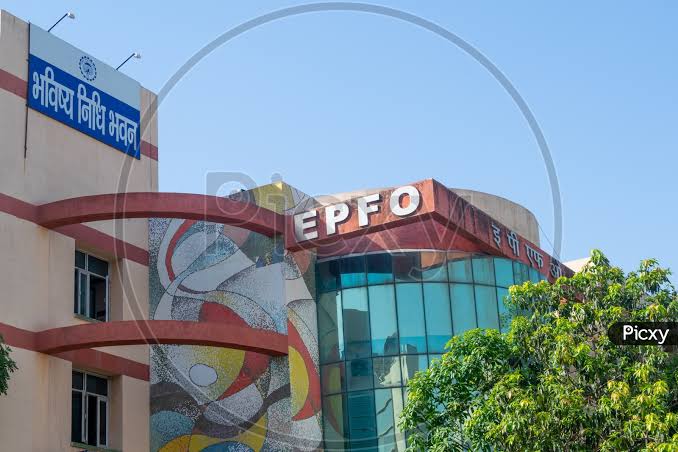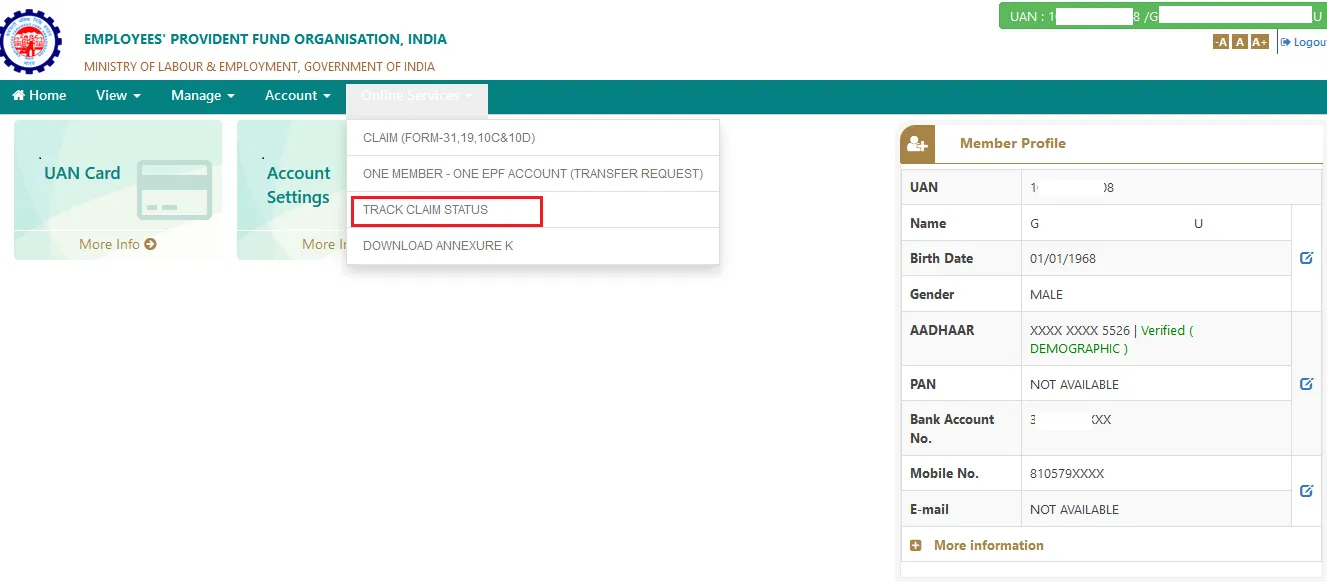Hello, friends! My name is Ajay, and I work in the PF Department. If you’ve ever wondered why it often takes more than a month for your EPFO (Employees’ Provident Fund Organization) claim to be settled, or why sometimes your claim gets rejected, you’re not alone. Today, I will answer these questions and provide insights into what can be done to speed up the claim settlement process.
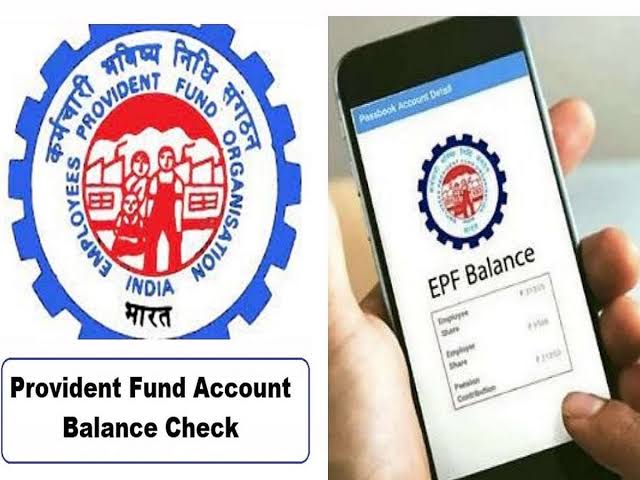
Why Do EPFO Claims Get Delayed?
Delays in EPFO claim settlements are a common concern for many individuals. However, there’s more to it than just a slow server or inefficient processes. Let’s break down the primary reasons for these delays:
1. High Volume of Claims
One of the main reasons for delays is the sheer volume of claims that the EPFO department handles. The department receives thousands of claims every day, and each claim must be processed in a systematic manner. The EPFO has a policy where it allocates 20 days to settle each claim. This means that if you submit a claim today, it will be processed within the next 20 days. However, the claims that have been pending for a longer time are prioritized over the new claims. Therefore, if someone filed a claim 15 days ago, their claim will be settled before yours, even if you file yours today.
2. Prioritization of Overdue Claims
The EPFO department follows a rule that prioritizes older claims over newer ones. This is done to ensure that claims which have been pending for a longer duration are addressed first. While this system is intended to be fair, it can sometimes delay the processing of new claims.
3. Workload in Major Cities
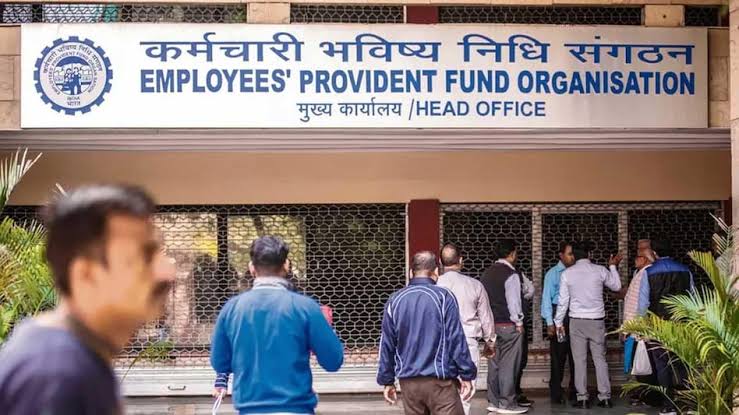
In major metropolitan areas such as Bangalore, Mumbai, and Delhi, the workload in the EPFO department is significantly higher compared to rural or village areas. This is due to the larger number of companies and employees in these cities, which leads to a higher volume of claims. Consequently, claims in major cities might take longer to process compared to those in less populated areas.
4. Complexity of Different Forms
Not all EPFO claims are created equal. Some forms, such as Form 10C (Pension Withdrawal) and Form 19 (Final Settlement), are more complex and time-consuming to process. These forms require thorough verification of multiple details and there is a higher risk of overpayment or errors, which necessitates careful scrutiny. On the other hand, Form 31 (Advance) is generally processed much quicker because it is simpler and involves fewer details to check.
5. System Limitations
Although it’s not the main reason, technical issues such as slow servers or system outages can occasionally cause delays in the claim processing. However, these issues are usually secondary to the more significant factors like high claim volumes and complex claim forms.
What Can You Do to Ensure Your EPFO Claim is Settled Quickly?
Now that you know why claims can be delayed, let’s discuss some strategies you can use to potentially expedite the settlement process:
1. Submit Accurate and Complete Documents
Make sure that all the documents you submit are accurate and complete. Incomplete or incorrect documents can lead to delays or even rejections of your claim. Double-check all forms and supporting documents before submission.
2. Choose the Right Form
As mentioned earlier, Form 31 (Advance) generally has a quicker processing time compared to other forms like Form 10C or Form 19. If your situation allows, opting for Form 31 might be the fastest way to get your claim settled. However, this is not a guaranteed method and depends on your specific circumstances.
3. Follow Up Regularly
Regular follow-ups with the EPFO department can help keep your claim on track. If you haven’t heard back within the expected time frame, don’t hesitate to contact the EPFO office to check the status of your claim.
4. Use Online Services
The EPFO has a range of online services that can be very helpful. You can check the status of your claim, download forms, and even track the progress of your claim through the EPFO member portal. Utilizing these online services can help you stay informed about your claim status.
5. Be Patient and Plan Ahead
Sometimes, despite your best efforts, delays are inevitable due to factors beyond your control. In such cases, it’s important to be patient and plan ahead. For example, if you are planning to withdraw your PF for a specific purpose, start the process well in advance to account for any possible delays.
What is the Best Way to Ensure Quick Settlement of PF Claims?
While there is no surefire way to guarantee that your claim will be settled in record time, there are certain insider tips that can help. In my next blog, I will share some exclusive strategies and tips that are known primarily to those working within the EPFO department. These insights will give you a better understanding of the internal processes and how you can navigate them to expedite your claim.

Conclusion
In conclusion, while delays in EPFO claim settlements are a common issue, understanding the reasons behind these delays can help you manage your expectations and take proactive steps to address them. The high volume of claims, prioritization of older claims, workload distribution, complexity of forms, and occasional technical issues all play a role in the time it takes for a claim to be settled.
By ensuring that you submit complete and accurate documents, choosing the right forms, following up regularly, and making use of online services, you can improve your chances of a quicker settlement. Stay tuned for my next blog, where I will reveal insider tips for speeding up your EPFO claim process!
Thank you for reading, and I hope you found this information useful. Until next time, take care and stay informed! click on subscribe icon.

![Stree 2 [2024] Hindi download 720P 480P HDTS Stree 2 download in hd](https://honestmitra.com/wp-content/uploads/2024/08/WhatsApp-Image-2024-08-22-at-15.21.11-150x150.jpeg)




